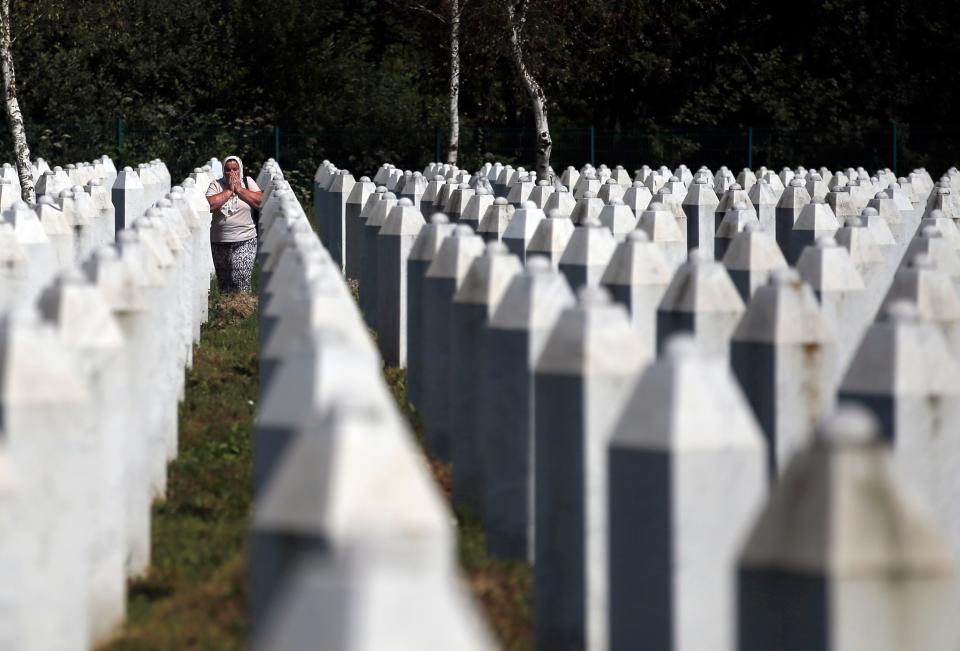Fact check: Trump joins Carter, Ford and Nixon among presidents without a new war
The claim: This was the first four-year term without a new war since Eisenhower
As the election nears, a post about President Donald Trump looks to highlight his record on military events, claiming he stands out from most modern presidents in terms of new conflicts involving the United States.
The Oct. 24 post simply reads, “Did ya know? This was the 1st 4 year term with out a new war since Eisenhower.” The poster did not respond to USA TODAY's requests for comment.
Dwight Eisenhower was president from 1953-61.
A similar claim was made by Rep. Matt Gaetz, R-Fla., during the Republican National Convention, saying that Trump was the first president since Ronald Reagan to not wage a new war. Reagan was six presidents after Eisenhower, serving from 1981-89.
Fact check: False Kamala Harris claim uses image from 2019 trip to Iowa
Authorizations for use of military force
The accuracy of the claim depends in part on the definition of war.
The United States has only formally declared war in five conflicts — the War of 1812, the Mexican-American War, the Spanish-American War, World War I and World War II — against 11 countries. Formal declarations are rare, in part, because they give the president additional powers at home. The rarity makes it a bad metric for this fact-check, as military entanglements that are considered wars, such as the Vietnam War or the Iraq War, would be exempt.
Most conflicts in which the United States engages involve “authorizations of military force” from Congress to the president. These authorizations go all the way back to John Adams.
Eisenhower received an authorization for military force from Congress in 1957, in his second term, to manage escalating tensions in the Middle East. He sent nearly 150,000 troops to Lebanon in 1958.
The next authorization was under President Lyndon B. Johnson in Vietnam, a conflict in which Americans had been involved for more than a decade.

The next declaration was under Reagan in 1983 in Lebanon.
In 1991, authorization was made for the Persian Gulf War while President George H.W. Bush was in office. In 2001, authorizations were given for the War on Terror under President George W. Bush, and for the Iraq War in 2003.
This leaves Presidents John F. Kennedy, Richard Nixon, Gerald R. Ford, Jimmy Carter, Bill Clinton and Barack Obama off the list of presidents who waged new wars that were authorized in some way by Congress.
Fact check: Estimated taxpayer burden for Trump's golf outings is hard to pin down
Other military conflicts
However, that doesn’t mean there weren’t military conflicts.
Clinton, with authorization from the United Nations and money from Congress, brought the United States into the Bosnian War, and Obama brought the United States into the Libyan Civil War in 2011 under similar circumstances. Since both military engagements are referred to as wars, for purposes of this fact-check, we will consider them new wars the country entered.

Get these in your inbox: We're fact checking the news and sending it to your inbox. Sign up here.
More ambiguously, Kennedy grappled with the Bay of Pigs, a military engagement that went down as an “invasion,” but never a war.
Nixon governed through the Vietnam War, but didn’t start any foreign wars. Ford is not credited with starting any new wars either, and Carter famously considers it the proudest accomplishment of his one-term presidency that he never started any new wars, instead relying on negotiations.
Fact check: Flint, Michigan, councilman, a lifelong Democrat, has endorsed Trump
Our rating: False
We rate this claim FALSE, based on our research. Trump's term in office has not been the first four-year term since Eisenhower without a new war. Carter, Ford and Nixon all served after Eisenhower and did not bring the country into new wars.
Our fact-check sources:
Congressional Research Service, April 18,2014, Declarations of War and Authorizations for the Use of Military Force: Historical Background and Legal Implications
U.S. Senate, accessed Nov. 1, Official declarations of war by Congress
The Guardian, Sept. 10, 2011, Jimmy Carter: 'We never dropped a bomb. We never fired a bullet. We never went to war'
History.com, Aug. 21, 2018, Eisenhower doctrine
History.com, March 14, 2019, How the Vietnam War Ratcheted Up Under 5 U.S. Presidents
RealClearPolitics, Aug. 24, Gaetz: Trump The First President Since Reagan Not To Start A New War
John F. Kennedy Presidential Library and Museum, accessed Nov. 1, The Bay of Pigs
Thank you for supporting our journalism. You can subscribe to our print edition, ad-free app or electronic newspaper replica here.
Our fact check work is supported in part by a grant from Facebook.
This fact check is available at IFCN’s 2020 US Elections FactChat #Chatbot on WhatsApp. Click here, for more.
This article originally appeared on USA TODAY: Fact check: Trump not first president since Eisenhower without new war